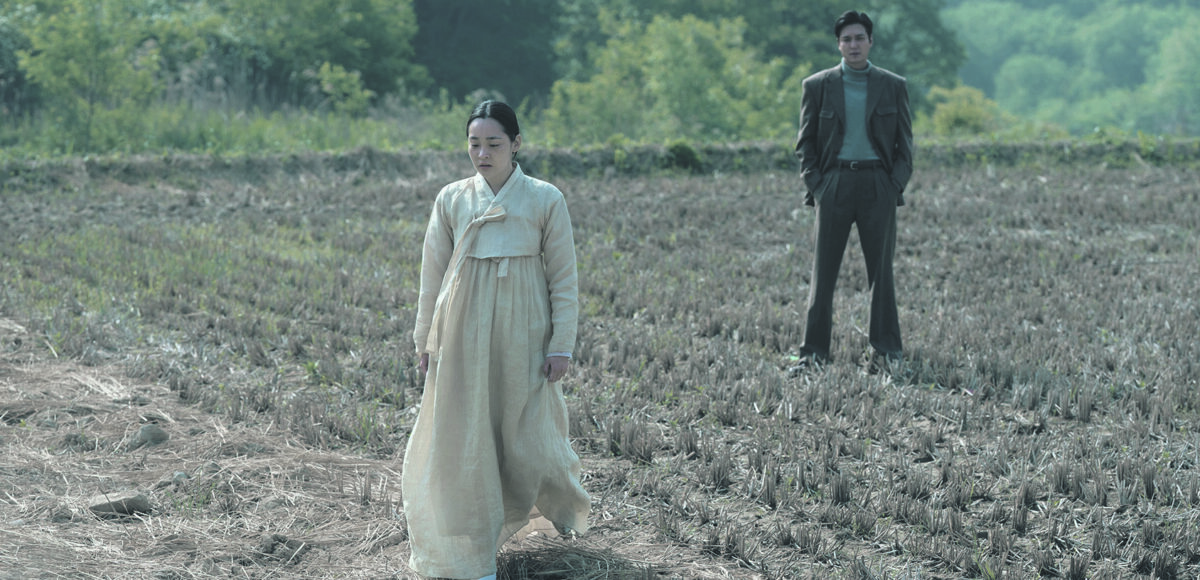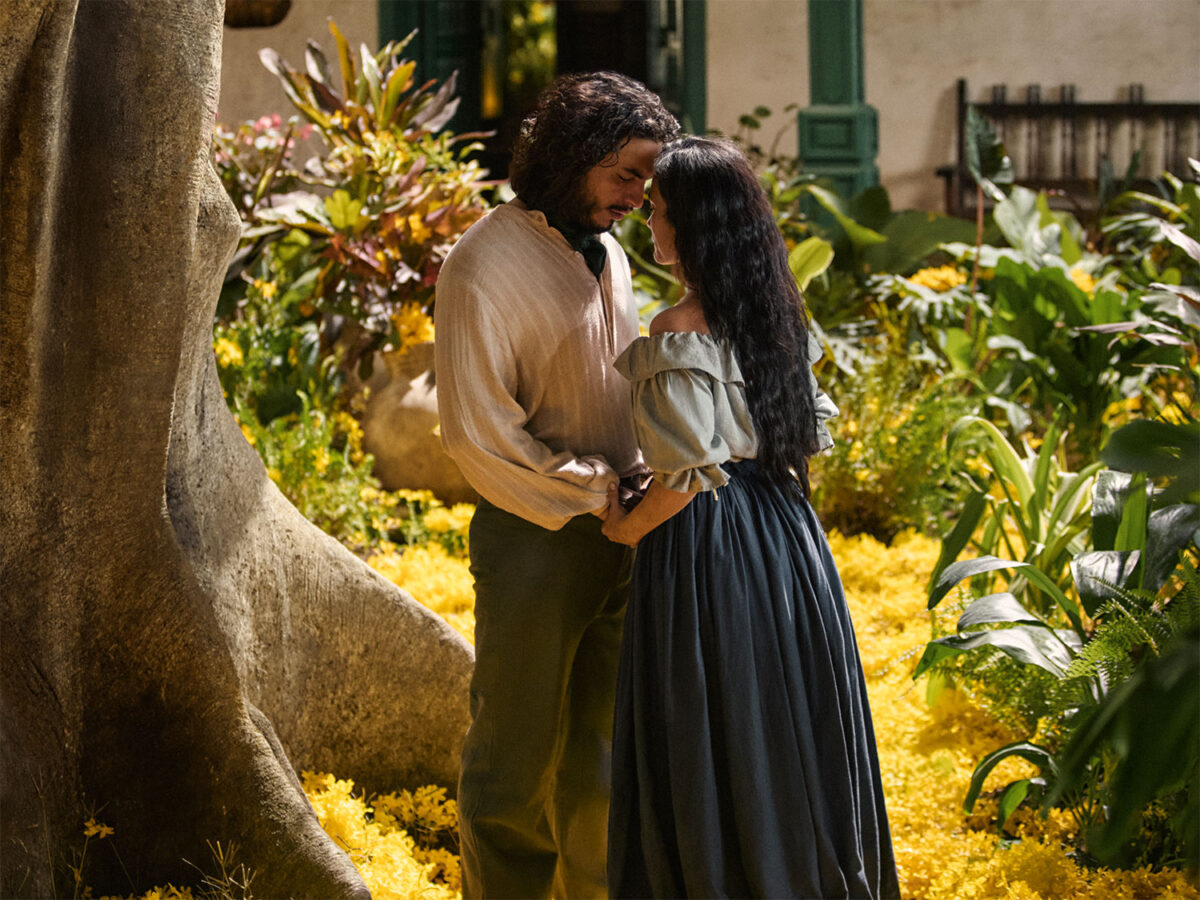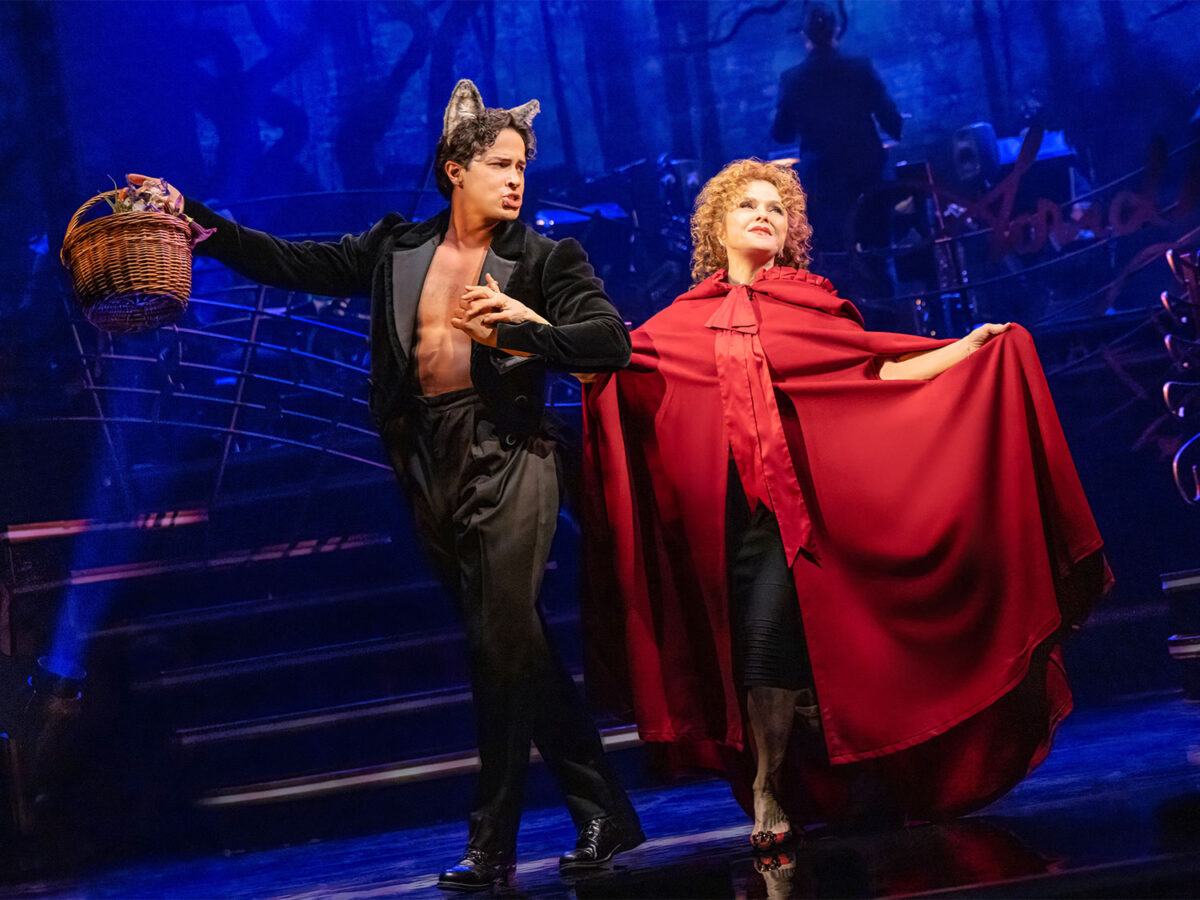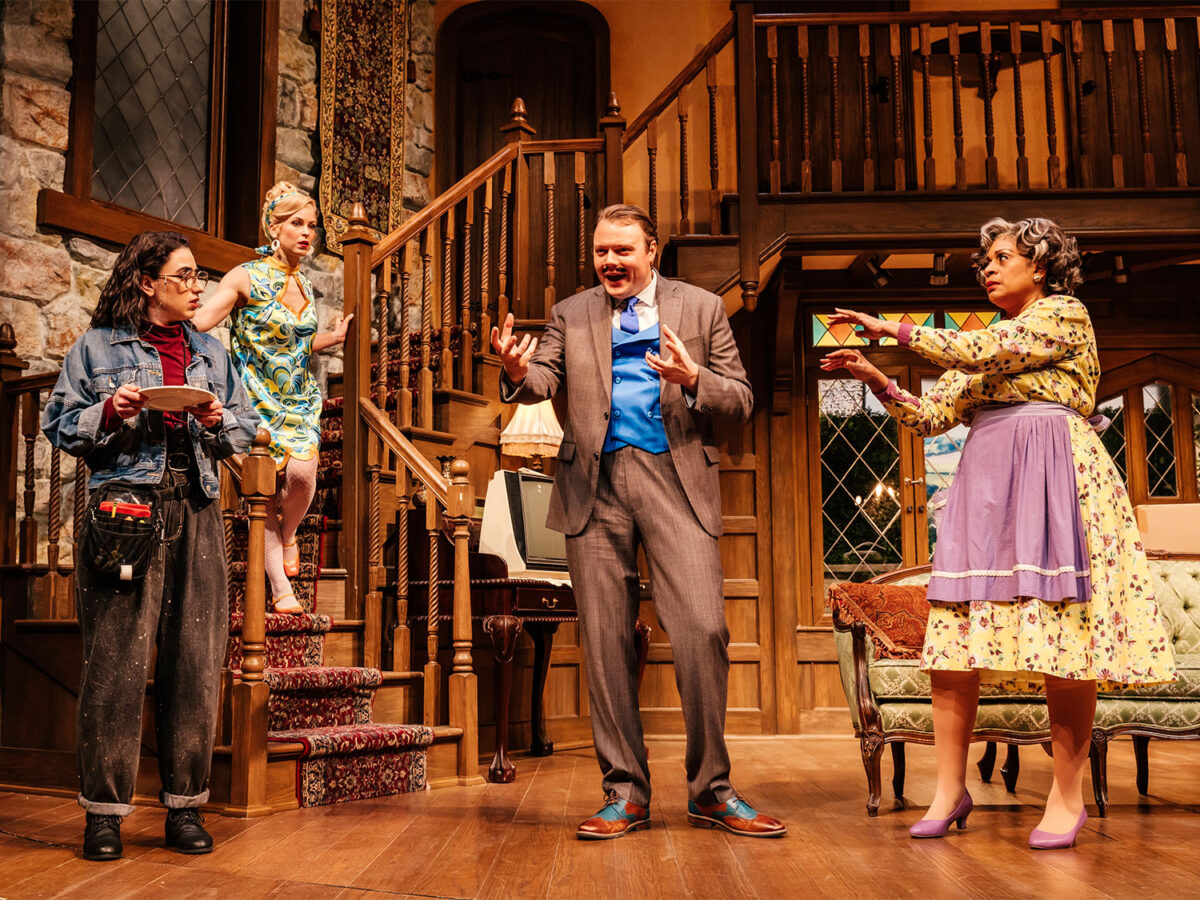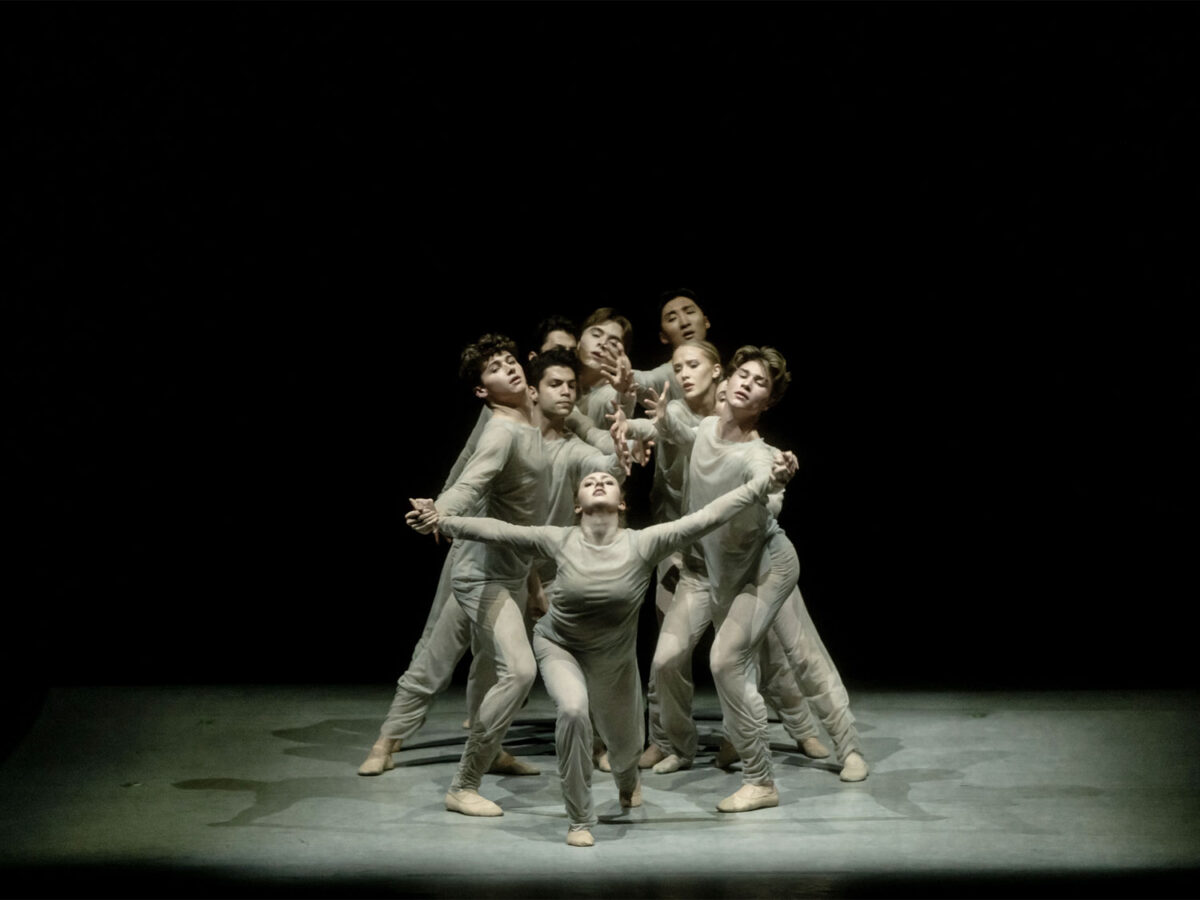With the sheer volume of new television series premiering throughout the year, it is rare that I will review a subsequent season of an existing series but there are exceptions. “Slow Horses” and “Pachinko” are worthy of that attention. In the case of “Slow Horses,” each season can stand on its own. “Pachinko,” based on the bestselling novel by Korean American author Min Jin Lee, goes beyond the boundaries of story into the realm of saga and each season adds to the complexity of the first. I highly recommend diving into both and letting them wash over you and spark your imagination.
The fourth season of “Slow Horses” is a welcome addition to those that preceded it. Like the others, it is based on another of Mick Herron’s spy series, in this case “Spook Street.” Tightly plotted with a cast that has few equals, Jackson Lamb (Gary Oldman) and his crew of screw-ups are back for more abuse from M15. Slough House is where unwanted agents are sent to wither on the vine until they give up. But this intrepid group, with the exception of Lamb, their leader, keeps the “hope springs eternal” light aflame, certain that the right move or a piece of luck will bring them back to the mothership. Lamb, the only one who knows better, slouches through life, seemingly content with his persona non-grata status that allows him the leeway to live in the shadows, knowing that he holds the key to many a locked door.
In a coat that would shame Columbo and hair that leaves a grease stain before it alights on fabric, Lamb can be smelled even before he arrives, or at least that is the verdict of Emma Flyte (Ruth Bradley), the new hammer of Diana Tavener (Kristin Scott Thomas), better known as Number Two at the Agency. Diana, has, yet again, been passed over, for the Number One spot. That position has been given to Claude Whelan (James Callis), a political appointee with no actual experience in the field or, for that matter, out of it. His lack of experience is put to the test almost immediately when there is a suicide bombing at a shopping center in the city. Is it a one-off? Is it an act of terrorism? Is it some sort of message? He has absolutely no idea what to do and hands it all off to a world-weary Diana.
But this first episode opens with a one-two punch because, besides the bombing, a murder has taken place at the home of David Cartwright (Jonathan Pryce), former agency juggernaut slowly descending into dementia and the grandfather of Lamb’s star, or at least his most impressive loser, River Cartwright (Jack Lowden). Lamb, called to the house by M15 to identify the body, confirms to Flyte that it is, indeed, Cartwright, despite the fact that there is nothing left of the face to identify. And we are off to the races and back to Slough House where Roddy Ho is in the process of repossessing Cartwright’s computer, announcing to the rest of the group that River won’t have any more use for it.
Moira Tregorian (Joanna Scanlan), new to Slough House, unable to figure out why she has been assigned to this slice of hell, is bent on tidying the pigsty and maintaining a semblance of order, something that the missing Catherine Standish (Saskia Reeves) used to do.
Shock and sadness overwhelm River’s colleagues, with the exception of the always inappropriate Roddy who hasn’t learned those emotions as yet. But Lamb has an ace up his sleeve and is one step ahead in the solution of River’s murder even when it looks like he’s a step behind.
So, it’s nasty politics, incompetence at the highest level, manipulation, murder, conspiracy and redemption, and that’s just the first episode of this outstanding six-episode season. There is no greater pleasure than to watch Gary Oldman work his magic on screen with the incomparable Kristin Scott Thomas, the wryly deadpan Joanna Scanlan and the brilliant Jonathan Pryce. As in the past, anything mentioned about any of the episodes is a spoiler for what comes next, and I won’t do that to you. Suffice it to say that even if Season Four is not quite up to the superb Season Three (and quite honestly there isn’t a show on television right now that is up to it), it’s damn good. The speed and dialogue of the first episode are enough to have you binging through them all.
Streaming on Apple TV+. Premiering on Sept. 4 with subsequent episodes arriving weekly.
“Pachinko” may be the best show you have yet to see. Now entering its second season, this series of incredible depth and beauty weaves a story of life, love and survival over four generations of a Korean family starting after 1910 when the Japanese annexed and subjugated Korea. “Pachinko” travels back and forth in time revealing the highs and lows they went through. But that’s a simplification of a very complex time and story.
The first season premiered in March of 2022 and under most circumstances, I would have been able to pick up the story again after a recap and continue on the path where it ended. But this was not the case, and I soon realized that I would have to revisit the first season in order to fully appreciate the second. This was not a handicap and won’t be for you either if you’ve already seen the first season. I rewatched each episode and relished every moment.
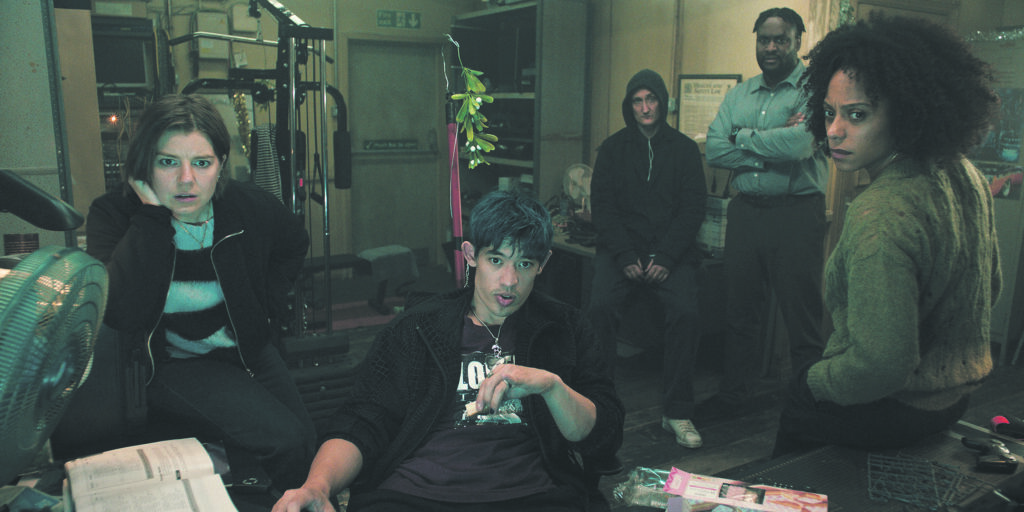
“Pachinko” is the heroic story of one family over the generations. It is complex, complicated and stunning. Like a great epic drama of almost Shakespearean proportions, it brings to mind the family sagas of “One Hundred Years of Solitude” by Garcia Marquez, “Roots” by Alex Haley and “Middlesex” by Jeffrey Eugenides. Like these grand stories, politics, love, adversity and humanity intersect to tell a tale. Never told chronologically, there is the one character in “Pachinko” from whom all others orbit like planets around a modest sun—Sunja.
Sunja was the much beloved and cherished daughter of a woman without a dowry and a man deemed too unwanted because of his physical ailments. Sunja lived with her parents on a farm near the seaside in Korea where the Japanese have ravaged the fields, punished the townsfolk and taken most of the fish. Clever and charming, there is nothing that Sunja cannot do, and she is much admired by young and old alike. As a young woman (Minha Kim), her magical personality attracts a newly arrived mysterious stranger, Ko Hansu (Lee Minho), a Korean who has arrived from Japan to oversee the fish markets for the Japanese overlords. Over the years, their paths will cross both voluntarily and not, feeding the story and the other characters over time. Sunja will find her way to Osaka, where her children will grow up. The family will increase in size with in-laws, all of whom will be guided through wars, witch hunts and privation by the fearless Sunja.
Back and forth in time, this disorienting timeline contributes to the understanding of the younger generations, including an older Sunja’s son Mozasu (Soji Arai), owner of a Pachinko parlor and his son Solomon (Jin Ha), a Yale-educated finance manager working for a multinational bank. Season Two successfully melds the onerous policies of the past, shining a light on postwar politicians unapologetic for what they wreaked on Korea, China and the rest of the world, eager to reclaim their dominance. It is also a Japan populated by Yakuza and Gordon Gekko-type greedy businessmen in the era right before the 1992 real estate bubble burst. “Pachinko” covers a lot of ground and does it elegantly, offering a look at a society Americans know little about and the abject circumstances Korean nationals and those who immigrated either voluntarily or by force were subjected to, revealing the ugly racism and deprivation they suffered and continue to suffer.
I am being purposely obtuse about storylines because they intersect so intimately and revealing the relationships of each of these beautifully drawn characters would spoil what you should learn on your own. Sunja (Academy Award-winner Youn Yuh-Jung plays her as an older woman) is the engine that drives the actions of her sister-in-law, reveals the personalities of her sons, Mozasu and Noa, also portrayed at different stages, and is, or tries to be the moral compass of her grandson Solomon. And always lingering in the background, either physically or psychologically, is the mysterious Ko Hansu. Revenge, betrayal, triumph, tragedy, love, loss, survival—it’s all here.
Why did I start over? The second season is a continuation of the first, not just in theme but in time frame, and you can’t tell the players without a scorecard. It was an investment of time that paid dividends. I’m still gripped by these characters and their stories. It is a series like “Pachinko” where I understand the value of the weekly viewing over the binge watch. It gives you more time to savor and absorb before diving into the next episode. So my advice, binge the first season and then watch the subsequent episodes of the second season weekly, the way Apple TV+ presents them.
Now streaming weekly on Apple TV+.
Neely Swanson spent most of her professional career in the television industry, almost all of it working for David E. Kelley. In her last full-time position as Executive Vice President of Development, she reviewed writer submissions and targeted content for adaptation. As she has often said, she did book reports for a living. For several years she was a freelance writer for “Written By,” the magazine of the WGA West, and was adjunct faculty at USC in the writing division of the School of Cinematic Arts. Neely has been writing film and television reviews for the “Easy Reader” for more than 10 years. Her past reviews can be read on Rotten Tomatoes where she is a tomato-approved critic.



